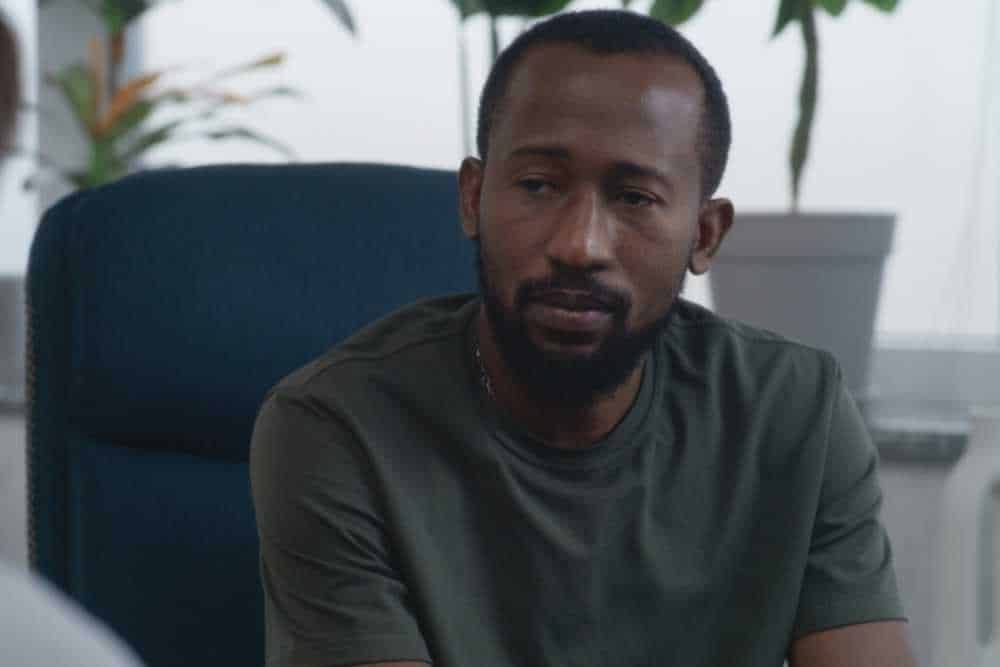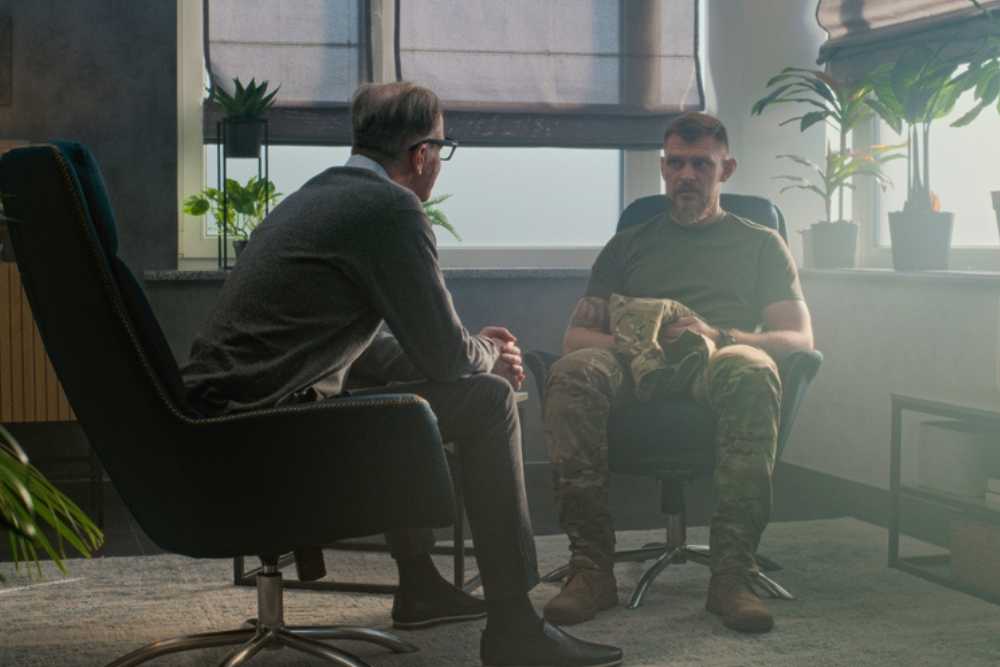Healing after deployment for veterans with PTSD is a gradual, non-linear process that looks different for each individual. It typically involves learning to manage symptoms while rebuilding a sense of safety, connection, and purpose in civilian life. Veterans can get help for PTSD after deployment, whether they are just recently returning from duty or have been home for 40 years; it’s never too late to get help. PTSD recovery in Los Angeles is always possible, regardless of how long symptoms have persisted.

Why Is the Transition to Civilian Life Difficult for Veterans With PTSD?
The transition to civilian life is particularly difficult for veterans needing PTSD treatment because their trauma symptoms create additional barriers on top of the already challenging process of leaving military service. Veterans who have transitioned to civilian life, especially those with depression, PTSD, and financial stress, may be at risk for poorer functioning, making their adjustment significantly more complex than for veterans without these conditions.
Veterans with PTSD face heightened challenges because their symptoms directly conflict with the demands of civilian life. Hypervigilance makes feeling safe in crowded civilian environments like shopping centers, workplaces, or social gatherings challenging. Intrusive memories and flashbacks can be triggered by everyday civilian experiences—car backfires, crowded spaces, or unexpected loud noises—making routine activities feel dangerous and overwhelming. Sleep disturbances from PTSD compound the exhaustion of learning new civilian routines and expectations.
For veterans with PTSD, challenges reconnecting with family are amplified by emotional numbness that makes it difficult to reconnect with loved ones, irritability that strains relationships, and avoidance behaviors that cause them to withdraw from social situations. The emotional disconnection that often accompanies PTSD can make family members feel shut out, creating additional relationship stress during an already difficult transition.
The structured, hierarchical environment of the military provides clear expectations and protocols that veterans with PTSD can navigate effectively. Civilian workplaces often lack this structure, requiring different communication styles, conflict resolution approaches, and social interactions that can feel chaotic and unpredictable to someone experiencing PTSD symptoms. Concentration difficulties from PTSD can make learning new job skills or adapting to civilian work cultures particularly challenging.
What Are Common Symptoms of PTSD After Deployment?
PTSD is a complex mental health condition that can develop following exposure to traumatic events during military deployment, affecting veterans’ ability to process and integrate their combat or service-related experiences. The symptoms of PTSD typically fall into four main categories and can persist long after a veteran returns home, significantly impacting their daily functioning and quality of life.
- Re-experiencing Symptoms: Veterans with PTSD often experience unwanted, vivid memories of traumatic events that feel as real and immediate as when they first occurred. These can manifest as flashbacks where the veteran feels transported back to the moment of trauma, experiencing the same physical sensations, emotions, and fear they felt during the original event.
- Avoidance Behaviors: Many veterans with PTSD develop elaborate avoidance patterns to prevent encountering anything that might trigger traumatic memories. This can include avoiding specific places like crowded areas, certain types of vehicles, or locations that remind them of their deployment.
- Negative Changes in Thinking and Mood: PTSD significantly alters how veterans think about themselves, others, and the world around them. They may develop persistent negative beliefs such as feeling permanently damaged, believing the world is completely dangerous, or thinking they’re responsible for traumatic events that were beyond their control.
- Alterations in Physical and Emotional Reactivity: Veterans with PTSD often experience significant changes in how they respond to their environment and manage their emotions. Hypervigilance is extremely common, where veterans remain constantly alert to potential threats, scanning their surroundings obsessively and feeling unable to relax even in safe environments.
How Soon After Deployment Can PTSD Symptoms Appear?
PTSD symptoms can appear at virtually any point following deployment, ranging from immediately after a traumatic event to decades later, with no predictable timeline for when they will emerge. While symptoms usually start soon after the traumatic event, they may not appear until months or years later, and there is no set time frame for development.
- Immediately After Traumatic Events: Symptoms may appear immediately after a traumatic event while still deployed or as soon as veterans return home.
Weeks to Months After Deployment: PTSD symptoms usually start soon after the traumatic event, but they may not appear until months or years later. - Delayed Onset – Years Later: Sometimes, they may not develop until years later—there is no set time frame for when PTSD symptoms will manifest.
- Decades After Service: Symptoms of PTSD can appear nearly instantaneously or decades after a traumatic event, with some veterans not experiencing significant PTSD symptoms until major life changes, retirement, or other stressful events trigger the emergence of previously dormant trauma responses.
- Intermittent Appearance: They also may come and go over many years, meaning symptoms can appear, subside, and then resurface throughout a veteran’s lifetime.
- Clinical Significance Timeline: If the symptoms last longer than 4 weeks, cause you great distress, or interfere with your work or home life, you might have PTSD
Mental Health Treatment That Works
Call 949-625-0564What our customers are saying
Is Healing From PTSD a Linear or Ongoing Journey?
Healing from PTSD is definitely an ongoing, non-linear journey rather than a straightforward path to recovery. Recovering from trauma is not a linear process, and it’s important to understand that setbacks and challenges are a regular part of the journey. Trauma recovery during mental health treatment in California isn’t always pretty or linear, and your journey may involve obstacles, detours, and delays, along with setbacks and lost ground.
The non-linear nature of PTSD healing means that veterans may experience periods of significant improvement followed by temporary setbacks, and this back-and-forth pattern is entirely normal. Recovery is rarely a linear process, and individuals may move back and forth between stages as they work through their trauma. This doesn’t indicate failure or lack of progress—it reflects the complex nature of how the brain processes and integrates traumatic experiences over time.
The ongoing nature of PTSD healing also means that veterans may need to revisit treatment strategies, adjust coping mechanisms, or seek additional support. Rather than viewing setbacks as failures, they can be understood as natural parts of the complex process of integrating traumatic experiences and rebuilding a sense of safety and purpose in civilian life.

Key Takeaways on PTSD After Deployment
- PTSD recovery is a non-linear, ongoing process
- Symptoms of PTSD can emerge at any time after deployment
- PTSD creates compound challenges during civilian transition
- Professional treatment is essential for complex PTSD recovery
- PTSD symptoms fall into four distinct but interconnected categories
- Healing means integration, not forgetting military experiences
Successful recovery through treatment for PTSD after deployment involves developing the tools to manage symptoms effectively while integrating military experiences in ways that allow veterans to function, find meaning, and build fulfilling civilian lives that honor their service. Professional mental health treatment is available at Moment of Clarity in Southern California. Our network of outpatient centers provides personalized and evidence-based treatment to ensure each patient is treated for their particular conditions. Call 949-625-0564 today for more details.
Resources
- National Library of Medicine – Military-to-civilian transition strains and risky behavior among post-9/11 veterans
- U.S. Government Accountability Office – Helping Service Members Transition Back to Civilian Life
- Journal of Veterans Studies – The Military to Civilian Transition: Exploring Experiences of Transitions to ‘Civvy Street’ and Implications for the Self




